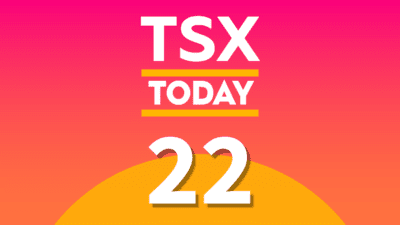Brookfield Business Partners L.P. (TSX:BBU.UN)(NYSE:BBU) announced April 19 that it was buying 213 gas bars and convenience stores from Loblaw Companies Limited (TSX:L) for $540 million.
It’s a win-win for both the buyer and the seller.
Loblaw’s wins because it no longer has to keep an eye on what’s a tiny part of its retail segment. Brookfield gets an asset that it can grow over time, utilizing the Mobil brand owned by Exxon Mobil Corporation under a licensing agreement with Exxon’s majority-owned Canadian subsidiary, Imperial Oil Limited (TSX:IMO).
In 2016, Loblaw’s gas bars had flat growth on $1.6 billion in revenue. That’s just 3.5% of the $45.4 billion in annual revenue generated by its retail segment. The gas bars haven’t seen a rise in gas revenue since the fourth quarter of 2014.
Making matters worse is the fact gas margins are very small; the stations, designed to drive traffic to its grocery stores, are more trouble than they’re worth.
“The most significant factor is low margins at the retail level,” Dan McTeague, a petroleum analyst, said recently talking about the deal. “Loblaw selling its refuelling stores is perhaps indicative it’s tired of the lousy retail margins in many Canadian cities.”
Unless you are a large-scale operator of gas stations like Alimentation Couche Tard Inc. or Parkland Fuel Corp. and have the operational skill to make a little from a lot, it’s a business that can wear you down.
“Retail does require a lot of focus, and there’s not always money to be made,” said Tricia Anderson, chief executive of the Toronto-based Canadian Independent Petroleum Marketers Association.
Loblaw’s is better to take the $540 million and invest the funds elsewhere while still providing its grocery customers with the same PC Plus loyalty program benefits at the rebranded Mobil gas stations.
Like I said, a win-win.
Brookfield didn’t make this move as a one-off transaction; it has plans for further acquisitions. I’d look for Mobil gas stations to dot the Canadian landscape in 3-5 years from now.
“The deal fits with Brookfield Business Partners philosophy of acquiring and managing assets that operate in industries with steep barriers to entry and low production costs,” Fool.ca contributor Matt Smith recently suggested. “Because the majority of its cash flow comes from the construction industry, followed by the oil industry, the move into retail fuel distribution will further diversify its earnings.”
Brookfield is a private equity firm.
Their modus operandi is to buy businesses that are either ready for growth, in need of some serious cost cutting, or a combination of both. In this case, it’s growth. Brookfield will build the network out until such a time as gas stations start selling for prices much higher than 0.3 times sales.
Who knows when that will be but like its parent, Brookfield Asset Management Inc. (TSX:BAM.A)(NYSE:BAM) which owns 75%, Brookfield Business Partners are patient investors.
Loblaw’s was wise to shed these assets, and it couldn’t have sold to a better partner. If you’re a Loblaw’s shareholder, it’s another reason to celebrate Galen Weston’s leadership.








